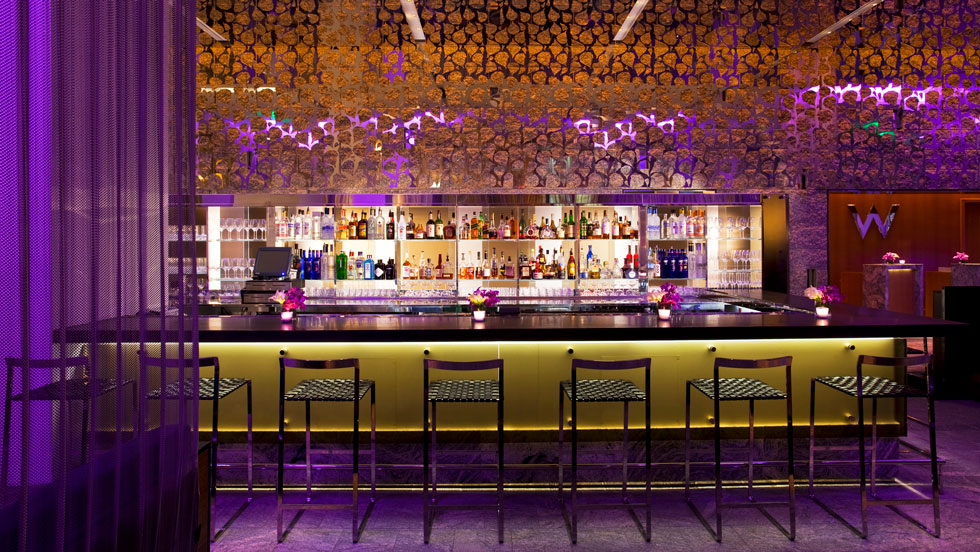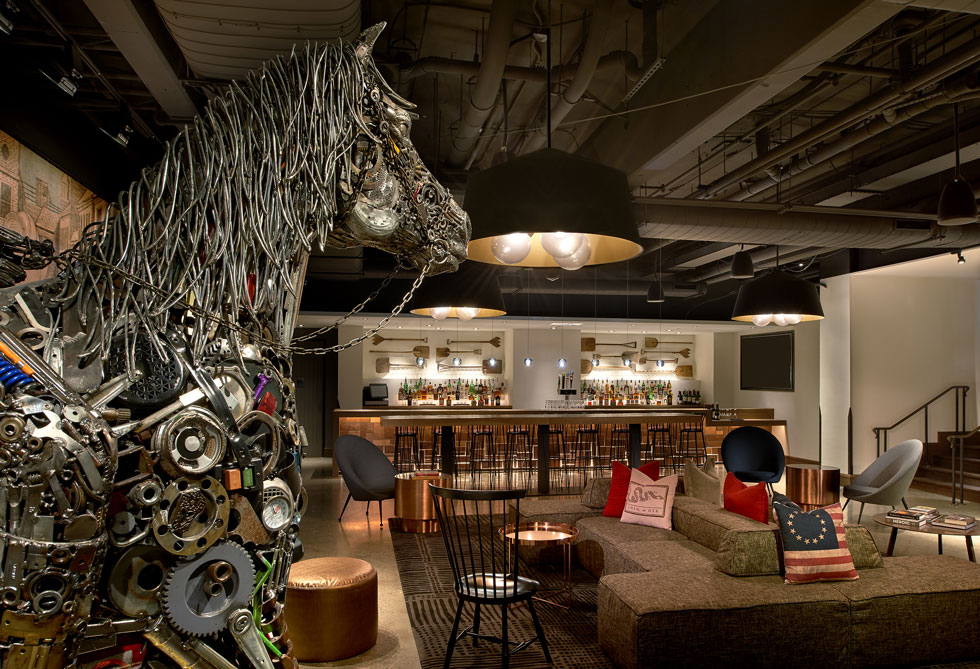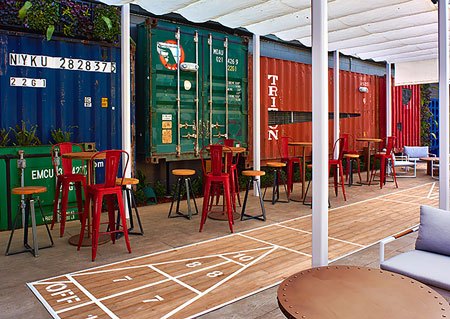The lodging REIT is making a name for its ability to breathe new life into distinct properties that can’t be replicated.
You’ll forgive guests of the Liberty Hotel in Boston for thinking less about freedom and more about detention upon entering the Beacon Hill site.
For more than a century, the former Charles Street Jail housed notorious inmates said to include murderer John White Webster, as well as James Michael Curley, a colorful politician who legend says even served as mayor while incarcerated.
Instead of erasing what could be a dark history, the upscale Liberty plays it up. The Clink. eatery lets diners sit near open steel cell doors. At Alibi, cocktails can be imbibed in what was once the jail’s drunk tank, while the Catwalk is a guests-only area on what was once used to access cells. Even some of the guest rooms feature scales of justice on the desks.
This one-of-a-kind boutique hotel is now owned by Pebblebrook Hotel Trust (NYSE: PEB), a REIT making a name for its ability to breathe new life into existing hotels and resorts by treating them less like a number on a balance sheet and more like a crown jewel. That’s a bit outside the norm in a lodging industry where scale and efficiencies help operators develop uniformity that saves time and money. Pebblebrook eschews this notion in favor of distinct properties that can’t be replicated.
“We think of our hotels as art,” says Chairman, President and CEO Jon Bortz, a longtime hotel executive who founded Pebblebrook from the ashes of the Great Recession a decade ago. “You don’t walk into one of our hotels and think you’re in a museum. We think of the hotel like a canvas and the art is the entire hotel.”
CEOs describing hotels as art—let alone, letting them operate that way—don’t happen often in cutthroat commercial real estate. “He’s very enthusiastic about his hotels,” says Anthony Powell, an analyst with Barclays Capital, which has a positive “overweight” rating on the stock and considers it attractive over the long run. “They’ve bought good properties and renovated them, improved the operations, and kept margins and profits high.”

Digesting the Deal
Pebblebrook, based in Bethesda, Maryland, owns more than 60 hotels with nearly 15,000 rooms nationwide. In the last year, the company acquired larger competitor LaSalle Hotel Properties (which the 62-year-old Bortz once ran), giving Pebblebrook access to dozens more unique sites that would be hard to build from scratch or to even find for purchase.
Now, the focus is on digesting the $5.2 billion LaSalle acquisition, which included debt. The deal was bruising, with Pebblebrook forced to raise its offer multiple times to compete with industry giant Blackstone Group, which isn’t one to lose a fight easily. To fund the deal, hotels, including Gild Hall in New York, the Embassy Suites Philadelphia Center, and the Grand Hotel Minneapolis, have been sold and more dispositions are planned. Still, the REIT is trading at a discount to net asset value (NAV): “We have a lot of work to do to prove out our value through the improvement of the portfolio we’ve purchased, but we’ve already sold $1.1 billion of hotels at low cap rates that demonstrate the net asset value that we have published, just over $40 per share,” Bortz says.
For now, analysts are taking a wait-and-see approach. “They’re just getting into the meat of the LaSalle deal,” Powell says. “We’ll see how things progress.”
Michael Bellisario, senior REIT analyst of real estate-hotels with Baird Equity Research, shares similar thoughts. “They’ve laid the groundwork and they’ve communicated well the story to say, ‘This is how we’re going to create incremental value,’” he says. “Now that the dust has settled, they get the benefit of the doubt. Our view has always been that we think they paid a full price for LaSalle. We’ll see in a year or two how fair—or perhaps how attractive—the price they paid really was.”
Executing the Strategy
The deal compliments Pebblebrook’s vision for portfolio growth. The company’s game plan focuses on assets in high-growth areas, with 57 percent of its portfolio on the West Coast, 37 percent on the East Coast and 6 percent in Illinois, Atlanta, Tennessee, and Florida. The company’s top market is San Francisco, which continues to benefit from the tech industry and faces minimal new supply risk, at 19 percent of hotel EBITDA (earnings before interest, taxes, depreciation, and amortization). The company’s next-largest markets are Boston and San Diego, both at 15 percent of hotel EBITDA, with other key markets including Los Angeles, Key West, Florida, and Seattle.

“The company’s assets are generally located in top 10 markets, places that you and I travel to a bunch,” Bellisario says. “They’re not buying in the middle of Kansas.”
The company divides its portfolio into several categories:
Urban Iconic: These 14 independent hotels promise “standout features, each with a unique story and soul.” The Liberty in Boston, part of the LaSalle acquisition, is an example. Others include the Union Station Hotel Nashville, a former train depot featuring a Richardsonian-Romanesque design with 125 rooms. It was acquired in 2014. The average RevPAR (revenue per available room) of $239 for these 14 assets surpasses the portfolio’s $207 average. (In early March, the industry RevPAR came in at around $88, according to data from STR.)
Urban Lifestyle: The “Unofficial Z Collection”: These five hotels curated by Pebblebrook all start with Z (Zelos, Zephyr, Zeppelin, Zetta, and Zoe) and have higher RevPAR and margins than the average of the portfolio. (The 38.5 percent margin handily beats the portfolio’s 33.2 percent.) “We’re beginning to think of them as a small brand, a sub-brand. Maybe in the future this will become its own brand,” Bortz says. “Each one has its own narrative and story. They’ve been quite successful.”
This is an area where Pebblebrook showcases its capabilities: The waterfront Hotel Zephyr Fisherman’s Wharf in San Francisco, acquired in 2013 when it was a Radisson, pays respect to its iconic location. “When you walk in, what you’ll see and feel is what you saw or thought you’d see when you went down to the old commercial wharf,” Bortz says. Shipping containers have been recycled, while signs have been reborn as chairs and tables.

Unique Lifestyle Resorts: Pebblebrook is working to transform its eight experiential lifestyle resorts beyond the traditional “golf-and-spa” model. For example, the 175-acre Skamania Lodge near Portland, Oregon, was acquired in 2010. It now boasts seven zip lines, three sky bridges, an adventure park in the trees, axe throwing, and hiking paths surrounding the Columbia River Gorge and the Cascade Mountains. In this case, “They’re creating demand to come to their asset because they’ve created something fun and unique and cool,” Bellisario says.
Urban Contemporary: This 27-hotel segment promises “authentic unique experiences and lifestyle lodging.” This includes hotels under the Kimpton and W brands and many one-of-a-kind independent hotels, such as the Vintages in Seattle and Portland, and the Grafton on the Sunset Strip in Los Angeles.
Urban Major Brand: The seven properties in this segment provide a “more traditional branded hotel” experience, with well-known brands like Hilton, Hyatt Regency, and Westin. “We’re okay owning branded hotels,” Bortz says. “It’s good to see what they’re doing. It’s good to experience what they’re doing. Plus, there’s only so many of those in a market.”
Rising from the Recession
Following the LaSalle transaction and expansion of its portfolio, it is easy to forget that Pebblebrook’s origins stem from one of the worst commercial real estate markets of the modern era. Following the financial crisis, beaten-down investors were trying to assess the new world order and how to play it. Bortz, who had founded LaSalle and took it public in 1998, was freshly retired. He was looking into other fields, but said he was urged to create a “blind pool,” or a company that raised funds from institutional public investors who essentially didn’t know what it would buy.
“It was a pretty crazy idea to basically raise money in the public markets for a new company without any assets, a contract, or a pipeline,” Bortz recalls. “It was really just about timing.”
Bortz explored other types of commercial real estate assets but believed that the hotel sector was “hammered the most of all real estate types and would be the first to recover because it didn’t have long-term leases,” he says. “We thought it would be the lowest risk, highest-return time to really start the business.”
He settled on higher-end hotels that weren’t quite premium but that appealed to the younger generation’s taste for experiences over more standard rooms that could be found in any city coast to coast. Instead of developing from the ground-up, which requires permits and zoning, Bortz opted to acquire hotels that have, as he puts it, suffered from a lack of investment capital or weren’t positioned right for the location.

“Maybe the city core moved or evolved or grew and that location became better than it was originally,” Bortz explains. Indeed, many cities are seeing urban renewal and older suburbs are being rediscovered by residents and companies tired of lengthy commutes and traffic.
From 2011 to 2017, Pebblebrook’s adjusted funds from operations (AFFO) per share growth came in at 17 percent, making it the highest of its peer group. Total returns come in at 8 percent over the same period. “Jon Bortz and [his] team delivered total returns that exceeded many broad-market equity indices,” Green Street Advisors wrote in a client note.
To ensure that this continues under the joint company, Bortz admits there’s some digesting and unifying to do. “We have our hands full with a lot of work to do,” he admits. Still, as he looks over his career, Bortz calls the chance to “bring together two preeminent owners of lifestyle hotels under one group” as a once-in-a-lifetime opportunity.